By Glen Quagmire
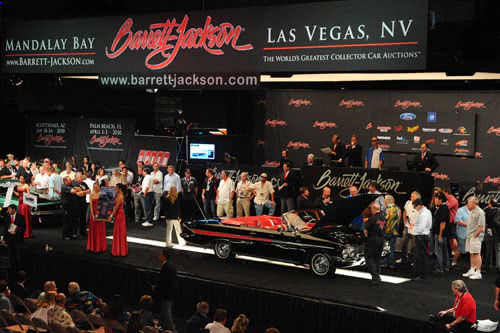 Most of us who love cars have seen classic car auction coverage on television. The lights, the excitement, the crowds and, mostly the cars, are captivating. And we’ve all got our favorite cars and dream of owning one, two, or more of them. Many of us have long fantasized over a particular we’d love to own one day – a GTO, a split-window 63 Corvette coupe, a Plymouth Road Runner, maybe even an original or reproduction Cobra. Still others have a passion for foreign or exotic sports cars – a British Triumph or MG, a Porsche, or maybe even a Ferrari. Such are the passions of those of us that have 10W-30 running through our veins. And the excitement and spontaneity of an auction just add fuel to our passion.
Most of us who love cars have seen classic car auction coverage on television. The lights, the excitement, the crowds and, mostly the cars, are captivating. And we’ve all got our favorite cars and dream of owning one, two, or more of them. Many of us have long fantasized over a particular we’d love to own one day – a GTO, a split-window 63 Corvette coupe, a Plymouth Road Runner, maybe even an original or reproduction Cobra. Still others have a passion for foreign or exotic sports cars – a British Triumph or MG, a Porsche, or maybe even a Ferrari. Such are the passions of those of us that have 10W-30 running through our veins. And the excitement and spontaneity of an auction just add fuel to our passion.
But what’s the deal with auctions? Where are they held? Who runs them? How do they work? How do you buy? How do you sell? Can you just go to watch? What costs are involved? What’s a consignment? What’s a reserve?
Here’s the deal. Auctions are fairly frequent, they’re held all around the country, they’re great fun, they’re affordable, and you don’t have to buy or sell a car in order to share in the excitement of a classic car auction.
Who Runs Them?
There are many companies that conduct auctions of antique, classic, racing, and sports cars. And these auctions should not be confused with the used car auctions that offer newer everyday grocery-getters. Classic car auctions typically restrict auction vehicles based on age, scarcity, condition, or other criteria relating to collectibility. And, for the most part, these companies specialize in auctioning only vehicles and related items – not real estate, machinery, or antique furniture.
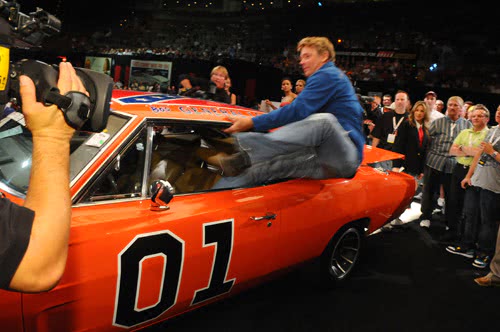 Most of us who have seen classic car auction coverage on television are aware of the name Barrett-Jackson which has, for years, conducted major collector car auctions are featured on television. But there are many other companies in the business as well, including names like Mecum, and many others. Because these companies specialize in auctioning classic and collectible cars, they have developed policies and practices that assure that the vehicles they offer are high quality, often well-documented, and carry clear title. They’ve also learned how to make their events easy and enjoyable for all involved.
Most of us who have seen classic car auction coverage on television are aware of the name Barrett-Jackson which has, for years, conducted major collector car auctions are featured on television. But there are many other companies in the business as well, including names like Mecum, and many others. Because these companies specialize in auctioning classic and collectible cars, they have developed policies and practices that assure that the vehicles they offer are high quality, often well-documented, and carry clear title. They’ve also learned how to make their events easy and enjoyable for all involved.
Some auctioneers specialize in certain types of cars. Mecum is well-known for muscle cars; Bonham’s for exotic sports and racing cars. Others, like Barrett-Jackson, are known to offer a variety of types of vehicles, ranging from nostalgic, restored-to-original collectibles from the ‘50s and’60s to antique vehicles dating back to the early 1900’s. Such auctions may also include non-automotive vehicles, like trucks, motorcycles, and even the occasional airplane!
The prestigious nationally-publicized events usually draw the largest crowds and serious collectors and, therefore, high-quality, rare, and desirable cars. The cream of the crop are usually offered during prime time, usually a Saturday or Sunday. Less special (and therefore less expensive) vehicles may be offered on Thursdays, Fridays, or in the evening.
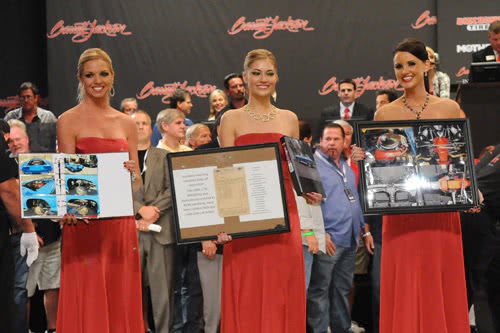 Bear in mind, however, that even the larger auctioneers conduct smaller, local or regional auctions that can feature more vehicles that are less “special,†and therefore more affordable. These lower-key auctions will often include a few “Feature†or “Star Cars†that are included in order to generate added interest and attendance.
Bear in mind, however, that even the larger auctioneers conduct smaller, local or regional auctions that can feature more vehicles that are less “special,†and therefore more affordable. These lower-key auctions will often include a few “Feature†or “Star Cars†that are included in order to generate added interest and attendance.
Â
Who Are The Buyers? Who Are The Sellers?
The nature of the buyers and sellers at classic auctions varies with the nature of the auction itself. The nationally-promoted, large-scale auctions usually attract the highest-quality cars and, therefore, they attract buyers with the interest in, and means to buy, these special vehicles.
Realistically, you should expect most of the buyers and sellers at the major national sales are professional collector-car brokers or serious investors/collectors/restorers. So don’t plan on getting a steal of a deal on that all-original 427 Cobra whose true value goes unnoticed by other bidders. These people, for the most part, earn their living by buying and selling collector cars and will bid them up to their true market value. These national events may also be attended by celebrities and other notables who have the financial horsepower to pay six or seven figures for a vehicle “they just have to have.†Regulars at such auctions include well-known figures and car enthusiasts like Jay Leno, Reggie Jackson, and NASCAR team owner Rick Hendrick. You certainly don’t want to get into a bidding war with one of these guys.
Likewise, the sellers at these major events are often individuals who earn their living buying, refurbishing or restoring, and re-selling collector cars. However these events may also include special or particularly interesting vehicles that may come from estates or individuals who have had them tucked away for years or even decades, and the owners are now ready to cash out.
Smaller, less prominent auctions, on the other hand, are much more likely to attract first-time sellers who may have owned a particular car for some time and have finally decided to part with it. Likewise, such events tend to attract buyers who have finally put their kids through school, gotten their daughters married off, paid down much of their mortgage, and are now ready to treat themselves to the car they’ve been dreaming of for years.
Can I Just Go to Watch?
Sure. Spectating at a collector car auction can be great fun, and a great family activity if your kids and/or significant other also has an interest in cars. In fact, attending a few auctions is absolutely mandatory if you harbor thoughts of buying or selling a car at auction, since you’ll learn a ton about the process while seeing some really interesting cars and getting to do some serious people-watching. Expect to pay a modest fee as a spectator. Kids are often admitted free with a paying adult. Bear in mind that general admission does not allow you to buy or sell. A separate fee, as noted below, is required for that.
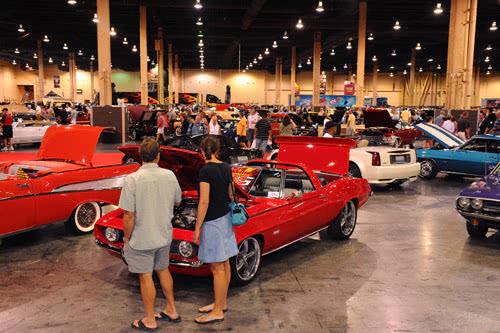 Furthermore, there’s usually lots going on besides the auction itself. It’s very common to find a vendors’ area with folks selling everything from new and used parts to T-shirts and other souvenirs like die-cast cars and other memorabilia. Sometimes there will be dedicated parking areas for various car clubs, sometimes a Show ‘n Shine car show, or other activities to keep the event festive and interesting.
Furthermore, there’s usually lots going on besides the auction itself. It’s very common to find a vendors’ area with folks selling everything from new and used parts to T-shirts and other souvenirs like die-cast cars and other memorabilia. Sometimes there will be dedicated parking areas for various car clubs, sometimes a Show ‘n Shine car show, or other activities to keep the event festive and interesting.
Part 2 will dig a little deeper and discuss the procedures involved in actually buying (or at least bidding) or selling at a collector car auction, along with a discussion of the people and policies involved in the process. And, finally, we’ll share a caution or two that might benefit your piggy bank, your sanity, and maybe even your marriage.
Resources:
Hemming’s Motor News: www.Hemmings.com
Sports Car Market: www.SportsCarMarket.com
Major collector car auction companies:
Barrett-Jackson: www.Barrett-Jackson.com
Mecum:www.Mecum.com
Carlisle Auctions: www.CarlisleAuctions.com
RM Auctions: www.RMauctions.com
Russo and Steele: www.RussoandSteele.com
Gooding and Company: www.GoodingCo.com
The Branson Auction: www.BransonAuction.com

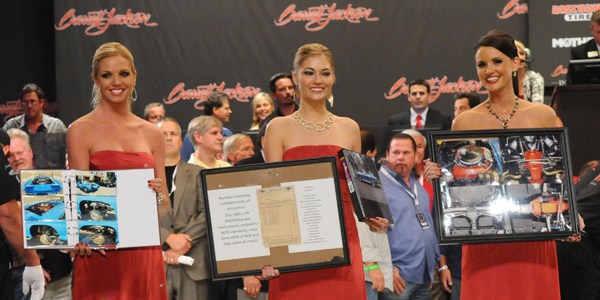
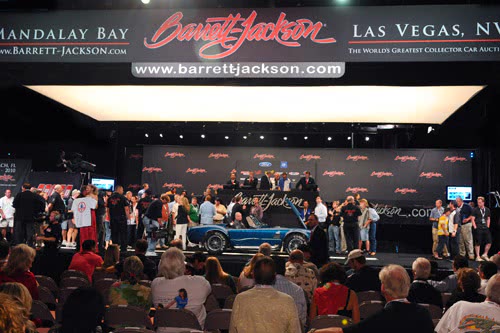
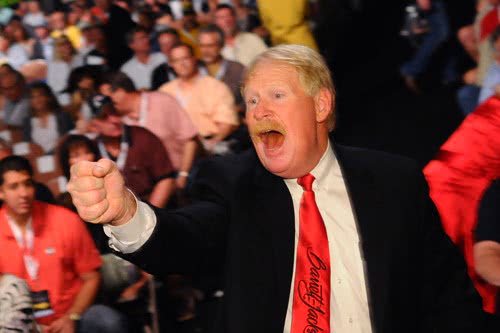
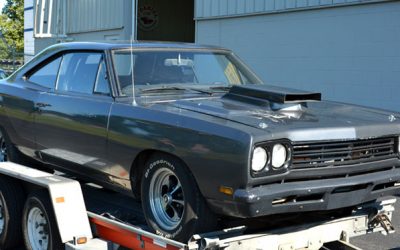
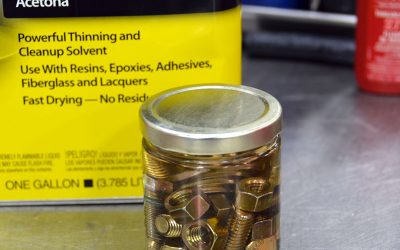
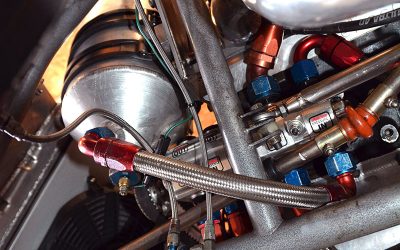
0 Comments